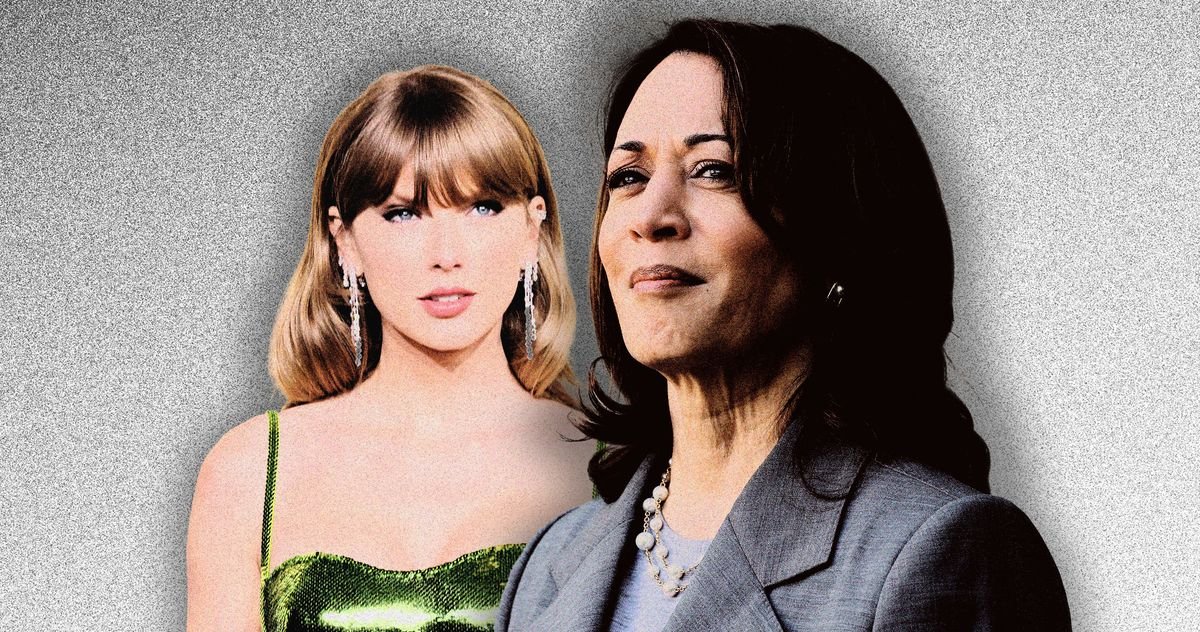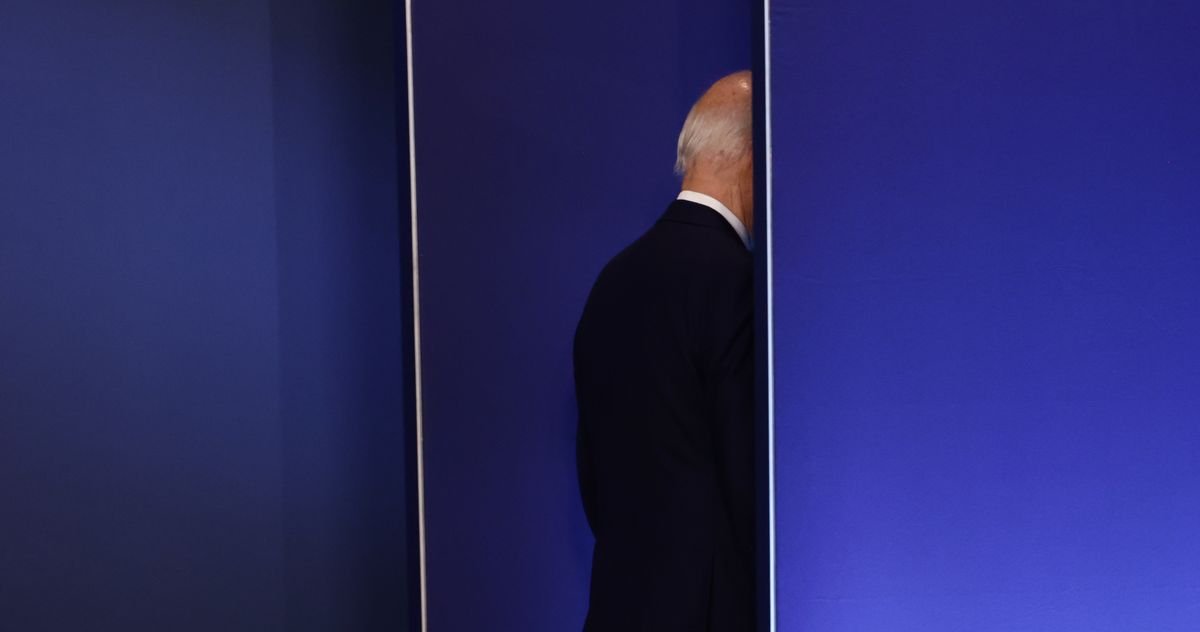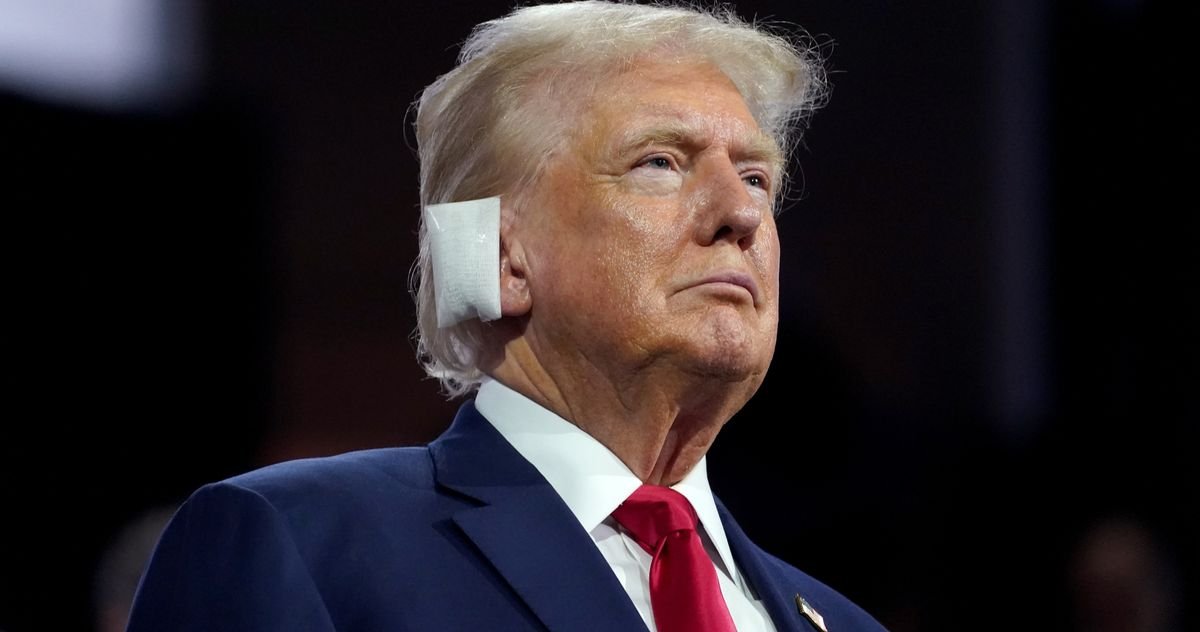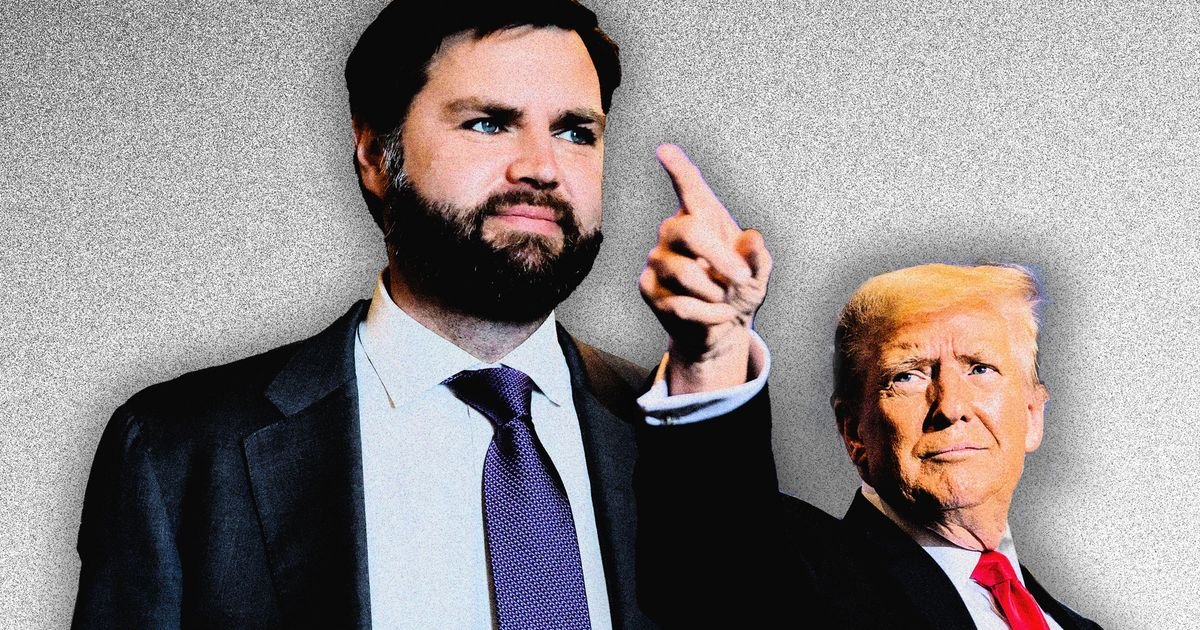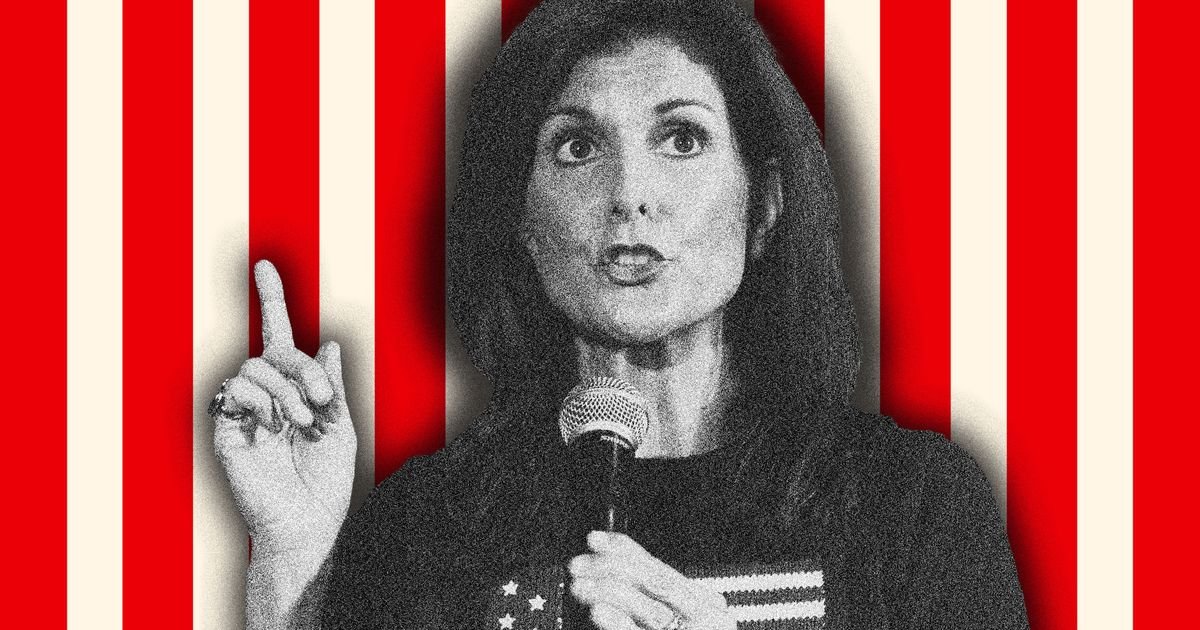
Nikki Haley Is the Front-Runner for Iowa Second Place
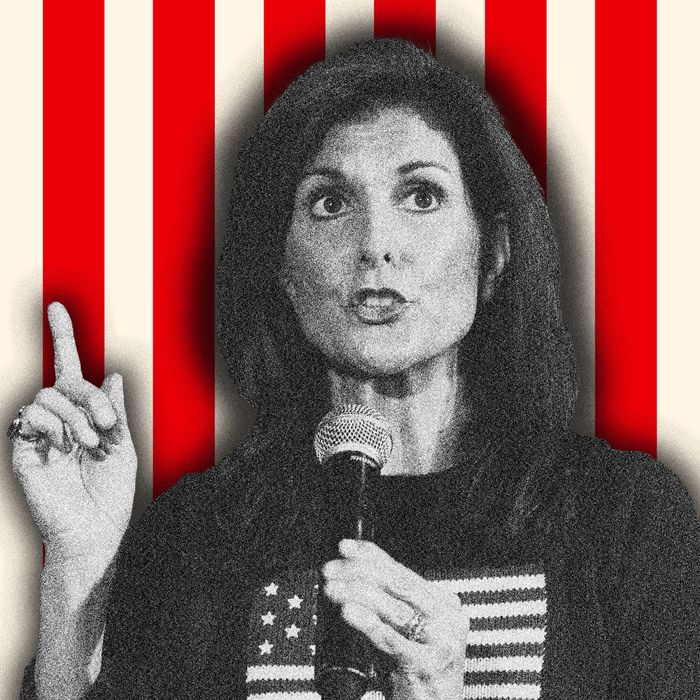
Photo-Illustration: Intelligencer
If only the Des Moines suburbs voted, Nikki Haley would win the Iowa caucuses in a landslide. On Thursday, at her first public event after her debate against Ron DeSantis, she acted as if that was the case.
The rally in Ankeny had all the trappings of a front-runner’s campaign. Some 200 people gathered in a venue usually reserved for weddings and were greeted at their folding chairs with pro-Haley signs they would wave for the phalanx of television cameras looking on from the back. Her campaign also included cards that attendees could fill out to pledge their support. True to the scripted format of the event, a strip of duct tape cordoned off reporters from her supporters, reading: “NO MEDIA PAST THIS POINT STOP.”
With less than a week left until the caucuses, Haley by now had honed her pitch to a tight 20-minute speech consisting of familiar platitudes. “I’ve always spoken in hard truths,” she insisted, saying she had called out fellow Republicans for “wasteful spending” and supported term limits for members of Congress. Haley, 51, also mentioned she wants mandatory mental-competency tests for politicians over 75, a barely subtle dig at both Joe Biden and the actual Republican front-runner.
Missing from the speech was a direct attack on Donald Trump, with Haley instead choosing to damn him with faint praise. “President Trump was the right president at the right time to break the things that we needed,” she said. “I agree with a lot of his policies. But rightly or wrongly, chaos follows him. Y’all know it, chaos follows him. And we can’t be a country in disarray and have a world on fire and go through four more years of chaos because we won’t survive it.” That light touch is no small part because Haley isn’t really running to beat Trump in Iowa, but rather DeSantis, her closest rival for second place. Even then, she outsourced some of the attacks to a website set up by her campaign, desantislies.com, which she mentioned 16 different times in their two-hour debate on CNN the night before.
She could be forgiven for acting like a front-runner, despite Trump’s massive advantage in the polls, given how far her candidacy has come. Haley emerged from a crowded Republican field that once included nearly a dozen candidates to become Trump’s top rival on the eve of the caucuses. Haley had been floated as a potential presidential candidate ever since she won a ferocious South Carolina gubernatorial primary in 2010 to become the state’s first female governor, giving the daughter of Indian immigrants a national profile, complete with the cover of Time magazine.
After Trump was elected, he tapped Haley to be U.N. ambassador. (It was really a reward for Henry McMaster, the lieutenant governor who was the first statewide elected official in the country to endorse Trump in 2015 and who took over for Haley as governor.) In 2018, Haley left the Trump administration and began walking a delicate line about her old boss, alternatively condemning him (after January 6) and praising him (even going so far at one point to insist that she would never challenge him in a presidential primary).
Almost immediately after Trump lost reelection, she began a shadow campaign for the White House and started stumping in Iowa in 2021. The campaign has been defined by an almost methodical vagueness that has let her steadily persist while other hyped-up challengers to Trump have either given up, like Tim Scott, or stumbled like DeSantis. The result has made her the default candidate of Republican voters least favorable to Trump, who are more like Paul Ryan acolytes than Never Trumpers.
That wing of the party resides in places like Ankeny, a sprawling new development designed as a walkable community complete with an ersatz downtown — sports bar, video-game bar, bowling alley — for those who want nightlife without the big-city thrills of Des Moines. It could be any prosperous suburb in the country packed with college-educated, white-collar voters. But it’s in Iowa and is unlike much of the rest of the state, which is aging, rural, and blue collar — in other words, Trump country. In 2016, Marco Rubio was jokingly dubbed “the Mayor of Ankeny” for the amount of time he spent there, winning it handily in the caucuses, but he finished third place behind Trump, who finished second, and Ted Cruz, who finished first. Then as now, there are not enough Ankenys for a Republican to win the state outright. Of course, since then, the party has trended further away from the polite suburbanites who politely clapped for Haley rather fervently waving their sign and toward the blue-collar voters who line up for hours to see Trump speak and remain standing long after he takes the podium.
Monday will be the second time John Erikkla casts a ballot for Haley. A self-described “anti-Trump Republican,” he wrote in Haley in 2020 on his presidential ballot. (Four years earlier, he cast a write-in vote for Rubio.) Erikkla said that he had considered also supporting DeSantis in this year’s caucuses, but the Florida governor was “too conservative” for him. “Haley was right where I am, right where I’d like to see the country,” he said. Erikkla was skeptical that anyone could beat Trump though in the state. “Iowa is a very Trumpy state, so it’s gonna be a tough uphill climb for anybody. He just does so well out in the rural areas.”
But not every state is like Iowa, and the hope of the Haley campaign is that a strong performance in the Hawkeye State can catapult her to win New Hampshire — a state with a far more moderate electorate — the following week and turn the primary into a two-person race.


